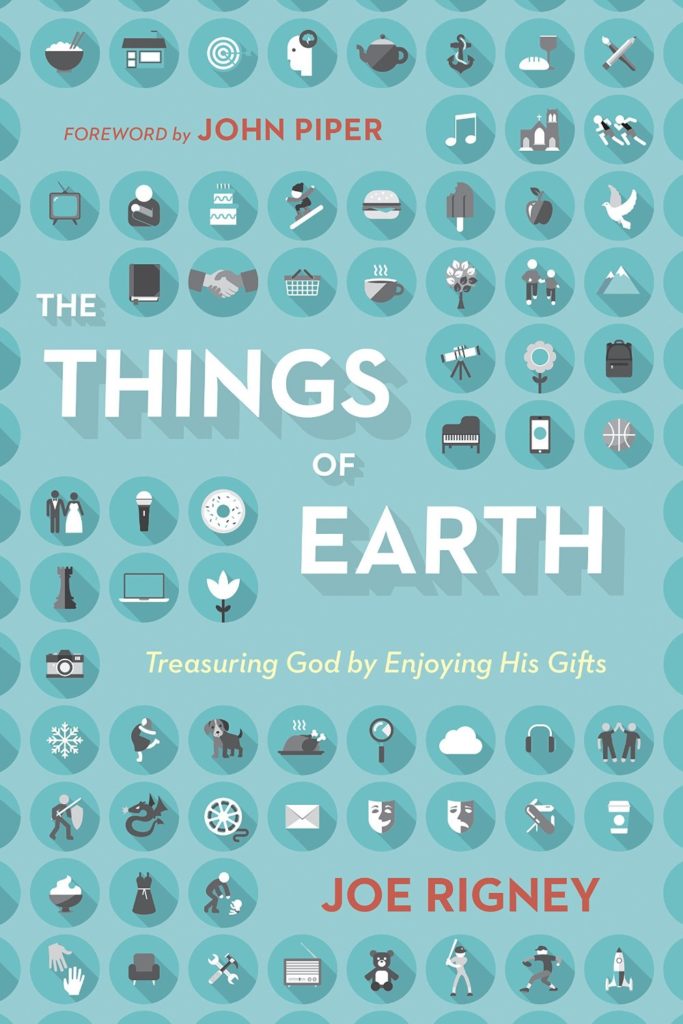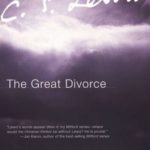Possibly Crucial Reading: ‘The Things Of Earth’
 For years I’ve been waiting for a book such as The Things of Earth by Joe Rigney.1
For years I’ve been waiting for a book such as The Things of Earth by Joe Rigney.1
And today Christ and Pop Culture has made this biblical and practical nonfiction book available for free to members.
Just now I downloaded this little book. No, I haven’t yet read it. (And no one has suggested I write this pseudo-endorsement before reading it.) But I’m already certain this is a resource that Christians of all theological persuasions desperately need. We must carefully and biblically study this topic, if we care at all about personal holiness that pleases our Savior and enjoying/engaging the human cultures God has given us — including popular culture, media, stories and songs, and fantastical stories.
Here’s why I’m fairly sure Rigney’s resource is one that Christians should explore and discuss:
- He’s a gospel-centered guy. So glorifying God and believing doctrine according to Scripture are a top goal.
- Rigney’s message “Live Like a Narnian: Christian Discipleship in C.S. Lewis’s Chronicles” was a highlight of the 2013 Desiring God conference (in which authors and speakers explored the rationalism and romances of Lewis).
- Many Christians, even those who explore deeper truths, haven’t a clue what to do with creativity and culture.
That last is especially crucial. Because if some doctrine-minded Christians have a weakness, it’s suspicions that stories and art are useless, tangential, “lesser” than theology and sermons, or even evil. Even some allies of Rigney’s — e.g., at Desiring God Ministries — have occasionally demonstrated uncertainty about how their biblical view of worship should inform our discernment, engagement and enjoyment of the stories and songs of human culture.
Or as Christ and Pop Culture perfectly phrases it:
At this point, most people are familiar with John Piper and his call to “Christian Hedonism.” Piper had written and spoken on it extensively since the early 80’s. But one aspect he hasn’t devoted much space to is how a Christian Hedonist looks at culture, specifically when it comes to enjoying it. To remedy that, Joe Rigney, assistant professor of theology and Christian worldview at Bethlehem College and Seminary, has written The Things of The Earth: Treasuring God by Enjoying His Gifts. John Piper warmly commends the book to readers as being helpful to him personally, and thanks to Crossway, Christ and Pop Culture members can download and enjoy it for free.
For me, the dedication alone sells the book’s theme:
To my wife, Jen
You are a constant reminder that
the things of earth grow strangely bright
in the light of his glory and grace.2
Here’s an except from the book itself.
Don’t set your hope on uncertain riches. Don’t set your mind on the things of earth. But don’t forget that God richly provides you with everything to enjoy. How do we do this? How can we enjoy all that God richly provides without setting our affections on the things of earth?
The Battle of the Hymns
These two biblical threads have made their way into our songs and hymns. For instance, most evangelicals have sung Helen Lemmel’s hymn “Turn Your Eyes upon Jesus.” The chorus captures one half of the tension:
Turn your eyes upon Jesus
Look full in his wonderful face
And the things of earth will grow strangely dim
In the light of his glory and grace.What happens to the things of earth when Jesus shows up? They grow dim. They fade. Compared to him, they are as nothing and less than nothing. So when we set our minds on things above, the things below lose their power and beauty.
But Hemmel’s hymn isn’t the only song we sing. In “This Is My Father’s World,” Maltbie Babcock gives voice to the other side of the tension, celebrating the goodness of God’s creation:
This is my Father’s world:
He shines in all that’s fair;
In the rustling grass I hear Him pass;
He speaks to me everywhere.So again , which is it? In the light of his face, do earthly goods grow dim? Or does he shine in all that’s fair? Does the rustling grass disappear when Christ arrives? Or do we hear him speaking in it? As I said before, what exactly are we to do with the things of earth?3
- One again due to other commitments, I must postpone a continuation to The State of Christian Fantastical Fiction 2015 series. ↩
- JOE RIGNEY. The Things of Earth: Treasuring God by Enjoying His Gifts (Kindle Locations 67-68). Crossway. ↩
- JOE RIGNEY. The Things of Earth: Treasuring God by Enjoying His Gifts (Kindle Locations 247-263). Crossway. ↩










































It depresses me though that people have to keep saying “It’s okay to like art! It’s okay to like art!”
Like we can’t just enjoy a beer once in a while, watch a movie, read a book, or like doing sports. It has to be “Christian hedonism,” and we need a serious intellectual and theological justification for just enjoying life.
Actually yes. Because sin is a problem and Jesus is the only solution. And because we’re still got sin-shrapnel the Holy Spirit needs to extract from our flesh and that requires active participation on our part. And because the Kingdom has been announced and on the move, but isn’t here yet. And because God directly commands His people, out of love for Him, to strive for biblical mental/spiritual transformation in every life area (Rom. 12:1-2).
No skipping courses. That would be attempting to live in a sentimental cultural bubble in which it’s okay for Christians to go straight from saying “I have no idea what to do with the things of Earth” to saying, “eh, it’s all good.”